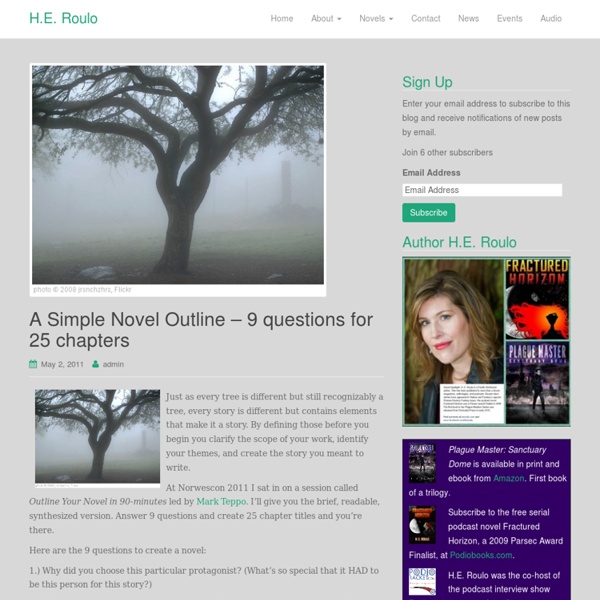Set up Your Story in the First Paragraphs
by Jodie Renner, editor, author, speaker I receive several first chapters (and synopses) every week as submissions for possible editing, and I always read the first page. Some are clear and compelling and make me want to read more.
8 Ways to be UBER Charismatic
What did JFK, Marilyn Monroe and Hitler all have in common? They were all renowned charismatics that lit up every room they entered. You’ve most likely met one of these kinds before. The guy/girl at the party. They possess some strange quality that causes them to be liked by everyone and constantly at the center of attention. Their eyes and the way they carry themselves convey power and magnetism and you can’t quite figure out why.
First Person Point of View — The Writer’s Craft
When you tell a story through a viewpoint character using I or we, you are using first person point of view. Example: The banging on my door reverberated within my skull like a giant church bell in an empty hall. I groaned and rolled onto my stomach, pulling the pillow over my head. Every detail of your story must be filtered through the storyteller. This impacts your choice of narrator—it may be, and most often is, your main character. If your main character cannot see, hear, touch, smell, taste, think, know or feel it, you can’t include it.
11 Goal Hacks: How to Achieve Anything
Goal-setting research on fantasising, visualisation, goal commitment, procrastination, the dark side of goal-setting and more… We’re all familiar with the nuts and bolts of goal-setting. We should set specific, challenging goals, use rewards, record progress and make public commitments (if you’re not familiar with these then check out this article on how to reach life goals). So how come we still fail? This psychological research suggests why and what mindsets should help us reach our goals.
Write for the Fun and Joy of Writing.
Do you love writing? Or are you worried about money? A few ways to enjoy writing again. Fun and Fun Seems to me that everyone is talking about money.
How to Start a Novel
Time to confess: I’m a closet novelist. For the last six years, I’ve been sitting on a great plot, but I find the idea of writing a novel daunting. A few days ago, my best friend said to me, “You should write your novel this year. You know, the one where the young woman is in a bus in Rio de Janeiro, and she suddenly hears…” “You remember the story?
Writing Realistic Injuries
Quick Contents Introduction General remarks What's normal?Reactions to injury - including emotional reactions, fainting and shock. Minor injuries - such as bruises, grazes and sprains Head injuries - from black eyes to severe concussions Broken bones Dislocated jointsCutting and Piercing - for various locations, including blood loss symptoms and figures.
25 Things You Should Know About Character
Previous iterations of the “25 Things” series: 25 Things Every Writer Should Know 25 Things You Should Know About Storytelling
Story Starters for Creative Writing Exercises: One-Line Writing Prompts for Group or Individual Writing Practice
One-line story starters are great for group writing exercises. They have enough conflict to start the writing flow, but are open-ended to allow each writer to follow his or her own direction. Individual writers can use them on a regular basis for “practice writing,” following Natalie Goldberg’s suggestions in Writing Down the Bones. Creative Writing Exercises
60 Historical Photos Worth 1000 Words
The American newspaper editor Arthur Brisbane said that “a picture is worth a thousand words” in 1911. Over 100 years later, this still rings true. Each photograph tells a story, a special event or moment, and helps us witness the past.



